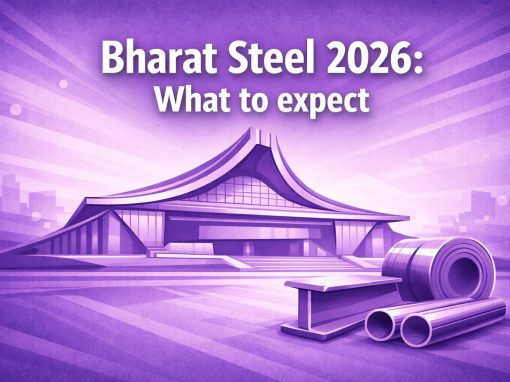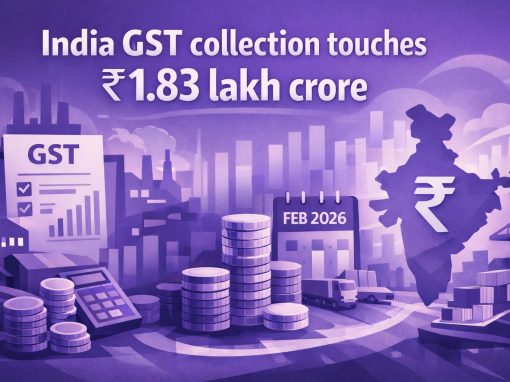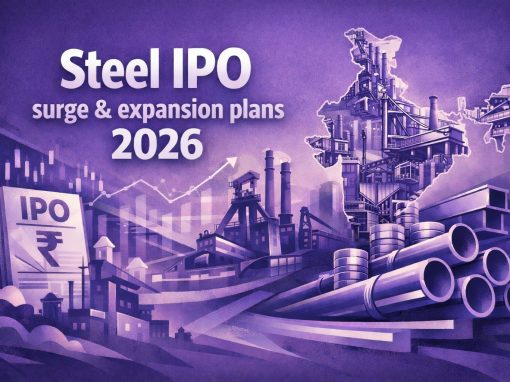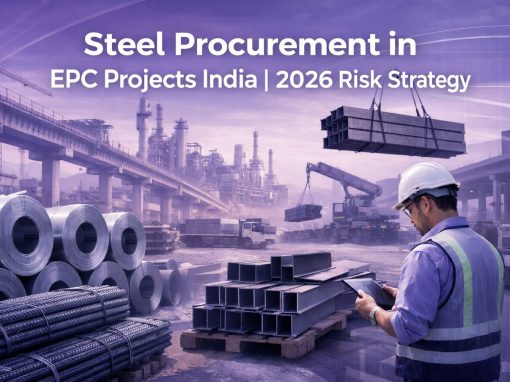Table of contents
Mild steel sheets are used just about everywhere – construction sites, machine shops, warehouse setups, ducting, even custom fabrication work. They are popular because they’re strong, easy to cut or weld, and cheaper than other types of metal sheets. Whether it’s plain HR sheets or GP sheets with a coating, they’re part of daily industrial use.
The problem is, prices haven’t stayed stable for a while now.
Steel prices in general have been moving up and down depending on a few things – transport charges, base raw material (like iron ore or sponge iron), demand from bigger buyers, and whether mills are operating at full load. Some suppliers include freight in the rate, some don’t. Even GST confusion sometimes changes the final landed cost. That’s why no two places quote the same price, even for the same sheet size.
Rates also vary depending on thickness, type of sheet (HR, CR, GP), and the city. Add galvanised coating or cut size, and the rate shifts again.
The table below shows the current MS sheet rates in different cities. These are market prices – they change often, sometimes week to week. Prices are listed both per kilogram and per metric tonne, based on what’s commonly traded. This is meant for buyers who want a clear idea of where the market stands right now – not estimates, just the actual numbers.
MS sheet prices 2026
| City | Type | Thickness | Rate (₹/kg) | Rate (₹/tonne) | Last price movement |
|---|---|---|---|---|---|
| Mumbai | HR | 2mm | 48.5 | 48,500 | Up ~1.0/kg since Dec; HRC firming in ₹47,500–49,500/t band. |
| Delhi | HR | 2mm | 47.2 | 47,200 | Recovered ~1.4/kg since Dec; post-Jan restocking support. |
| Bengaluru | CR | 1.6mm | 58.5–62.0 | 58,500–62,000 | Up ~2/kg over 4–6 weeks; CRC premium intact. |
| Chennai | GP | 1mm | 66.5 | 66,500 | Gained ~2/kg since Dec; coated flats stronger. |
| Pune | HR | 3mm | 49.5 | 49,500 | Up ~1.5/kg; tracking western region hikes. |
| Ahmedabad | CR | 2mm | 56.5 | 56,500 | Increased ~2/kg; better enquiry flow. |
Notes:
- Most rates are ex-yard (pickup basis); freight extra unless specified.
- HR prices have firmed across western & northern markets after January corrections.
- CR sheets continue to carry ₹8–12/kg premium over HR, depending on width & brand.
- GP/coated sheets showing stronger recovery compared to HR due to zinc cost support.
- Credit orders still quoting ₹0.5–₹1/kg higher in some secondary markets.
- Bulk orders (10–15 tonnes+) negotiating better slab rates, especially in Mumbai & Pune.
MS sheet price trend – Last 6 months (August 2025 to February 2026)
| Month | HR sheet (₹/kg) | CR sheet (₹/kg) |
| Aug 2025 | ₹61–63 | ₹63–65 |
| Sep 2025 | ₹50–52 | ₹55–58 |
| Oct 2025 | ₹47–49 | ₹53–55 |
| Nov 2025 | ₹50–52 | ₹54–56 |
| Dec 2025 | ₹47–48 | ₹55–56 |
| Jan 2026 | ₹48–50 | ₹57–59 |
Notes:
- HRC is currently trading around ₹47,500–49,500 per tonne (₹48–49.5/kg equivalent).
- CRC continues to maintain a ₹8–10/kg premium over HR in most markets.
- Western and northern regions have seen firmer trade sentiment compared to Q3 2025 lows.
MS sheet market updates
Q3 2025: Sharp correction (August–October)
- Prices declined steeply across flat steel products.
- HRC touched the ₹47,000 per tonne zone, marking a multi-year low band.
- Weak construction demand, heavy imports, and elevated inventories accelerated the correction.
Market position: Defensive sentiment with active destocking.
November–December 2025: Stabilisation phase
- November recorded a mild recovery from October lows.
- December softened slightly due to year-end buying slowdown.
- Prices began establishing support near ₹47,000–48,000 per tonne.
Market position: Cautious stability after sharp volatility.
January 2026: Early recovery signs
- Mills initiated controlled price increases.
- Dealer inventories normalised following Q3 correction.
- Post-monsoon infrastructure dispatches improved in select regions.
Market position: Gradual firming with selective restocking.
Current demand snapshot
Construction: Uneven demand, but stronger than September lows.
Automotive: Restocking activity supporting CRC stability.
Imports: Still present, though less disruptive compared to Q3 2025.
Q1 2026 outlook
Most traders now expect range-bound movement with a mild upward bias rather than another sharp decline.
Key variables to watch:
- Government infrastructure tender flow
- Raw material costs (iron ore and coking coal)
- Import parity trends
MS sheet price Mumbai (2026)
| Sheet type | Grade/finish | Thickness | Rate (₹/kg) | Rate (₹/tonne) |
| HR plate – Heavy duty | IS 2062 E350 BR | 20–25 mm | ₹50–₹52 | ₹50,000–₹52,000 |
| Standard HR coil (sheet) | IS 2062 E250 | 2–5 mm | ₹48.5–₹50.5 | ₹48,500–₹50,500 |
| Rectangular plain sheet | IS 2062 | 0.8–3 mm | ₹50–₹52 | ₹50,000–₹52,000 |
| Polished CR sheet | IS 2062 E250 CR | 1–2 mm | ₹57–₹59 | ₹57,000–₹59,000 |
| Polished CR sheet (3 mm) | — | 3 mm | ₹58–₹60 | ₹58,000–₹60,000 |
| GP sheet (HR + zinc coated) | — | 0.8–1.0 mm | ₹67–₹69 | ₹67,000–₹69,000 |
The above prices are indicative trade-level estimates as of February 2026 and may vary based on location, brand, quantity, payment terms, and prevailing market conditions; actual transaction rates may differ.
MS sheet price Delhi (2026)
| Sheet type | Grade | Thickness | Rate (₹/kg) | Rate (₹/tonne) |
| HR coil (Hot rolled) | — | ~2.0–2.5 mm | ₹47.0–₹48.0 | ₹47,000–₹48,000 |
| CR coil (Cold rolled) | — | ~1.0 mm | ₹56–₹58 | ₹56,000–₹58,000 |
| GP sheet | — | ~0.4 mm | ₹72–₹74 | ₹72,000–₹74,000 |
| GP sheet | — | ~0.63 mm | ₹70–₹72 | ₹70,000–₹72,000 |
The above prices are indicative trade-level estimates as of February 2026 and may vary based on location, brand, quantity, payment terms, and prevailing market conditions; actual transaction rates may differ.
MS sheet price Bengaluru (2026)
| Sheet type | Grade/ finish | Thickness | Rate (₹/kg) | Rate (₹/tonne) |
| Hot Rolled Coil (HR sheet) | IS 2062 | ~2–5 mm | ₹49.5–₹51.5 | ₹49,500–₹51,500 |
| Rectangular plain sheet | IS 2062 | 0.8–3 mm | ₹50–₹52 | ₹50,000–₹52,000 |
| Polished CR sheet | IS 2062 E250 | 1–2 mm | ₹57–₹59 | ₹57,000–₹59,000 |
| Polished CR sheet (3 mm) | — | ~3 mm | ₹58–₹60 | ₹58,000–₹60,000 |
| Galvanised plain sheet (GP) | IS 277 | ~0.8–1.0 mm | ₹67–₹69 | ₹67,000–₹69,000 |
The above prices are indicative trade-level estimates as of February 2026 and may vary based on location, brand, quantity, payment terms, and prevailing market conditions; actual transaction rates may differ.
MS sheet price Chennai (2026)
| Sheet type | Grade/finish | Thickness | Rate (₹/kg) | Rate (₹/tonne) |
| HR coil (IS 2062) | Standard | 2–5 mm | ₹48.5–₹50.5 | ₹48,500–₹50,500 |
| CR sheet | — | 0.8–1.5 mm | ₹56–₹58 | ₹56,000–₹58,000 |
| Polished CR/Premium | — | ~2–3 mm | ₹58–₹60 | ₹58,000–₹60,000 |
| GP sheet (IS 277) | Zinc Coated | 0.8–1.5 mm | ₹67–₹69 | ₹67,000–₹69,000 |
The above prices are indicative trade-level estimates as of February 2026 and may vary based on location, brand, quantity, payment terms, and prevailing market conditions; actual transaction rates may differ.
MS sheet price Pune (2026)
| Sheet type | Grade/finish | Thickness | Rate (₹/kg) | Rate (₹/tonne) |
| HR coil (IS 2062) | Standard | 2–5 mm | ₹49–₹51 | ₹49,000–₹51,000 |
| CR sheet | — | 0.8–1.5 mm | ₹57–₹59 | ₹57,000–₹59,000 |
| Polished CR/Premium | — | ~2–3 mm | ₹58–₹60 | ₹58,000–₹60,000 |
| GP sheet (IS 277) | Zinc Coated | 0.8–1.5 mm | ₹68–₹70 | ₹68,000–₹70,000 |
The above prices are indicative trade-level estimates as of February 2026 and may vary based on location, brand, quantity, payment terms, and prevailing market conditions; actual transaction rates may differ.
MS sheet price Ahmedabad (2026)
| Sheet type | Grade/Finish | Thickness | Rate (₹/kg) | Rate (₹/tonne) |
| HR coil (IS 2062) | Standard | 2–5 mm | ₹48.5–₹50.5 | ₹48,500–₹50,500 |
| CR sheet | — | 1–2 mm | ₹56–₹58 | ₹56,000–₹58,000 |
| Polished/Premium CR | — | ~2–3 mm | ₹58–₹60 | ₹58,000–₹60,000 |
| GP sheet (IS 277) | Zinc Coated | 0.8–1.5 mm | ₹67–₹69 | ₹67,000–₹69,000 |
The above prices are indicative trade-level estimates as of February 2026 and may vary based on location, brand, quantity, payment terms, and prevailing market conditions; actual transaction rates may differ.
What drives MS sheet prices in India
Prices move when one of three things change — raw input, transport, or buying activity.
- Iron and scrap costs:
If sponge iron or melting scrap goes up, sheet prices follow. Mills don’t absorb losses — they pass it on. - Fuel and freight:
Diesel hikes hit freight first. Longer routes cost more. Some quotes include delivery, others don’t. Ask. - Demand on ground:
If a builder or fabricator buys in bulk, nearby yards raise rates. When stock moves fast, prices climb. - Mill output:
When mills slow production or dispatch less, local yards dry up. Less stock = higher quote. - Import/export mood:
Cheap steel coming in lowers prices. Big export orders tighten supply and push local rates up. - Payment terms:
Cash buyers get a cleaner rate. Credit buyers usually pay ₹0.75–₹1/kg more — whether it’s said or not.
Types of MS sheets
Most of the MS sheets sold in the market fall under three types — HR, CR, and GP. The difference is in the finish, the way they’re processed, and what they’re used for. One isn’t better than the other. You just pick what suits the job.
HR sheet (hot rolled)
This is the rough one. It’s rolled while the steel is still hot. Comes out with a dull, scaly surface. Strong and thick. Mostly used for heavy work — frames, plates, brackets. Nobody cares how it looks. You’ll find 2mm, 3mm, 5mm, even thicker sizes. Cheapest among the three. If you’re welding or painting over it, HR is fine.
CR sheet (cold rolled)
This one’s smoother. Rolled after cooling. Looks better, edges cleaner. You’ll see this used for cabinets, panels, appliance parts, furniture frames. Comes mostly in thin sizes — 0.5 to 2mm. Costs more than HR, sometimes ₹1 or ₹2 extra per kg. Not as strong as HR, but better if looks matter or if it’s going into something finished.
GP sheet (galvanised plain)
This is basically HR or CR sheet, but coated with zinc. Shiny and silver. Doesn’t rust. Used for roofing, ducting, storage boxes, outdoor panels — anywhere water or weather is a concern. Common sizes are 0.5mm, 0.8mm, 1mm. Costs ₹3–₹5 more than HR, depending on zinc rates. If rust is a problem, GP is the go-to.
In short:
- If it’s about strength and you don’t care about finish, go HR.
- If it needs to look clean or bend cleanly, go CR.
- If it’s going outside or near moisture, go GP.
Where MS sheets Are used
MS sheets are everywhere — not because they’re fancy, but because they work. From warehouses to welding shops, these sheets are part of day-to-day industrial reality. Here’s how they show up on the ground:
- Civil and structural work
HR sheets are used for base plates, shuttering panels, brackets, and door frames. They don’t need to look polished — just hold weight and take a weld. - Light fabrication
For cabinets, partition panels, enclosures, and covers, CR sheets are preferred. They’re cleaner, easier to cut accurately, and finish better for indoor jobs. - Machine parts and auto panels
CR sheets — usually below 1.6mm — are used for control panels, automotive panels, and housings where both fit and appearance matter. - Roofing and ductwork
GP sheets are used where moisture is a factor. Think shed roofs, HVAC ducting, or water-facing panels. They’re light, rust-resistant, and easier to maintain. - Custom metalwork
Local shops and small manufacturers use whatever fits the job — HR for grills and frames, CR or GP where finish or weather exposure matters. - Storage solutions
Shelving units, racks, and bin systems often use a mix — thicker HR sheets for load-bearing parts, thinner CR where surface matters.
These aren’t one-size-fits-all. Buyers pick based on job, exposure, and what needs to last — not just what’s cheapest.
How to choose the right MS sheet
Buying notes and ground-level reminders
A few things to keep in mind when buying MS sheets. These come up often but don’t always get discussed upfront:
- Check if the rate includes transport
Some sellers quote ex-yard. Others include delivery. A ₹1/kg difference could just be freight. Always confirm. - Ask about GST
Some give all-inclusive rates. Others quote without GST. Make sure you know what’s being added — 18% GST on steel can change your landed cost. - Thickness isn’t always exact
A “2mm” sheet might measure 1.90 or 1.95 mm. That’s normal in hot-rolled stuff. If you need full gauge, ask for coil/plant cut material, not yard stock. - Confirm if it’s HR, CR, or GP
Some buyers ask for “sheet” and end up with HR when they needed CR. If finish or coating matters, specify it. GP also fades to dull silver over time — zinc isn’t forever. - Quantity affects price
You’ll always get better rates for 3 tons than 300 kg. Try to batch orders if possible. Full truck = better slab price + cheaper freight. - Always cross-check weight with size
Don’t just go by kg. Ask for sheet count, size, and total weight. It helps avoid confusion during unloading or inventory. - Payment terms change the game
Cash gets you better rates. Credit (especially 15–30 days) usually adds ₹0.50–₹1/kg. Some sellers add that without saying. Ask upfront.
These small things often matter more than the listed rate. They’re what decide your actual cost per sheet once everything’s said and done.
Conclusion
MS sheet prices keep shifting, and there’s no fixed rate that holds for long. What you pay depends on the thickness, type of sheet, location, transport, and how you’re buying.
If you’re working with structural steel, HR usually works best. For clean finishes or thin cuts, CR is better. For anything exposed to weather or moisture, go with GP. Don’t just ask for “sheet” — know what type and thickness you need.
Rates change fast (sometimes week to week) so it’s always better to confirm before planning or placing an order. And when comparing quotes, check everything: GST, freight, sheet size, payment terms. That’s what affects your actual landed cost.
End of the day, price is just one part of it. The right material for the job matters more.
Looking to procure steel?
Tata nexarc helps manufacturers, builders and MSMEs source certified steel products, compare prices, and choose the right grade as per IS codes—with complete traceability and procurement confidence.
FAQs
What is the price difference between branded and local MS sheets?
How do slab rates work for bulk MS sheet purchases?
Are MS sheet prices negotiable at local yards?
How is MS sheet weight calculated from dimensions?
What are the standard sizes available in MS sheets?
Do MS sheet prices include GST?
Can I buy MS sheets online in India?
Is IS2062 the same for all types of MS sheets?
Are mill-cut sheets better than yard-cut sheets?
How does zinc coating on GP sheets affect the price?
Sohini is a seasoned content writer with 12 years’ experience in developing marketing and business content across multiple formats. At Tata nexarc, she leverages her skills in crafting curated content on the Indian MSME sector, steel procurement, and logistics. In her personal time, she enjoys reading fiction and being up-to-date on trends in digital marketing and the Indian business ecosystem.










You have mentioned about some sellers requiring a Minimum Order Quantity for purchasing. Can you share the typical range of Minimum Order Quantity of MS sheets in Delhi?
From what i know, it can vary between 100 kg to 1 tonne, depending on the supplier and the specific type of sheet. Some suppliers may offer smaller MOQs for certain grades or sizes.
The article talks about grades like IS2062 and IS1079. What’s the difference between these? For something like building furniture, which type would be best?
IS 2062 is for structural steel, used in construction, while IS 1079 is for thinner sheets used in fabrication. For furniture, IS 1079 would be more suitable due to its flexibility
Getting low prices is always a challenge and procurement takes time for me. Checking with known suppliers, and online portals is always easy but yes, price with quality measures are important. Thanks for putting the range, it sets a base for negotiation also.